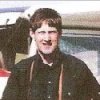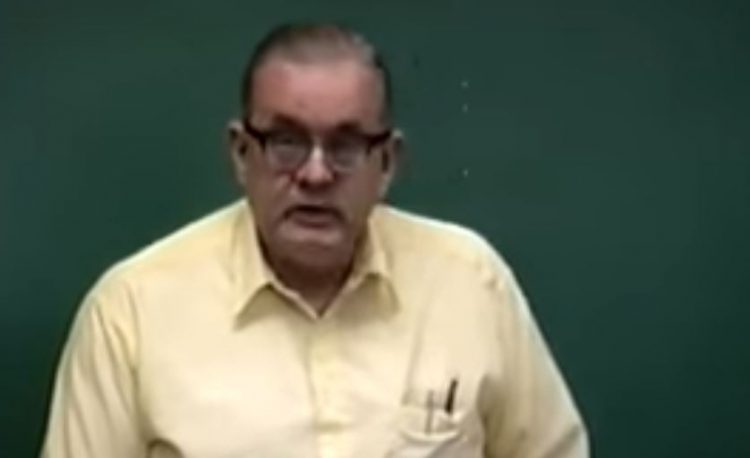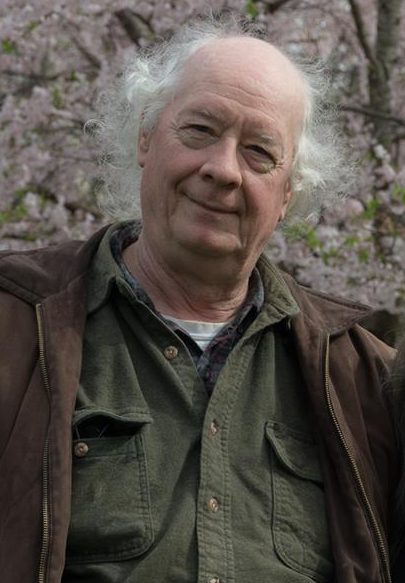Historians condense the facts to make complex social movements simple and understandable in hindsight. Our movement to reform establishment science, making it responsible to the needs of people who fund science with their taxes, and not a servant of the established state system, traces its origin to the work of Dr. John E. Chappell Jr., who organized the predecessor of the JCNPS known as the Natural Philosophy Alliance or NPA. Officially John is the acknowledged founder of the NPA and the driving force of its creation. His unfortunate death on June 2, 2002 left the NPA without his guiding ideas. But that organization carried on the work of dissident science until its unfortunate rupture and disintegration in 2014. That event was followed by the creation of the JCNPS, which was founded to more adequately pursue the ideals of John Chappell Jr., its namesake.
Unfortunately this writer never met John or corresponded with him. In addition most of his papers are unavailable, all that I have read are the titles and a few abstracts of papers, along with some published letters that appeared in the Journal Apieron. Other than that, little is known to this writer about John, besides what other people have to say about him, some copies of his letters, and the official statement of objectives for the NPA. That is not much, and it is a shame that we don’t have more of his work to publish here on his namesake society website.

The main issue that motivated John, and resulted in the creation of the dissident science movement, was his very fervent belief that Einstein’s relativity theory was wrong. The resistance of the state run science establishment was frustrating, but John was an optimist. He wrote to David Tombe in 1984 “I agree on the nature of physics and physicists, but don’t give up yet. You can still find reasonable listeners outside physics departments.” It was the search for reasonable listeners outside of physics departments that eventually led to the creation of the NPA. Meanwhile John was the nexus of a expanding group of dissident scientists, looking for people who shared the ideal of a truly scientific physics and not a ridiculous physics based upon the absurd theory of relativity invented by Einstein.
John worked hard to establish the realization that Einstein’s relativity theories were false. He traveled to science meetings and corresponded with other “anti-Einsteinians”. One reason for this personal approach “for keeping in touch is that it helps overcome the inevitable disillusion”. At some point, John hit upon the idea of publishing a book of articles written by anti-Einsteinians, but that didn’t pan out. Another idea was establishing a scientific conference to promote anti-Einstein views, and that didn’t pan out until many years later. Meanwhile John continued to publish papers in the journal SST. But they had no impact and so John continued his search for like minded scientists and fellow anti-Einsteinians and his project to establish an anti-Einstein scientific conference.
In a typewritten letter to David Tombe dated April 29, 1984, John reveals some of his scientific background.
” …some anti-Einsteinians cannot stomach my limited physics training–I came in from philosophy and history and linguistics, and took up relativity as a challenge without ever studying in a physics course beyond high school–I got physics in other ways, with meteorology, for example. My earth science background is quite extensive, however, and from it I have certain biases. One is, I like to have concrete visualizations of everything I talk about in physics–sort of like a block diagram in geology.”
John Chappell
Regarding his academic career, he tells David in a letter dated October 24, 1983:
“I have been forced out of the academic world for reasons beyond this problem, partly political (I was active against the Vietnam War)…My college years were spent majoring in philosophy, language, literature, and history in various combinations. I always had the ability for math and science but did very little in those areas until reaching graduate school, when history of science, and private study, that I developed my ideas on relativity. I have not taken a physics course since age 16 in high school–the better to avoid brainwashing, actually…Only as an advanced graduate student in earth sciences and history of science did I finally get deeply into the experimental results bearing on relativity and develop a sound critique of my own in somewhat scientific terms–I mean, in logical but not highly mathematical terms…it still pains me to think I voluntarily left the only solid teaching job I have ever held, in Regina, in 1969…Back in the U.S. I have faced little more than poverty and exile and the need to work at demeaning sales jobs, etc.; but I cannot get out again to a decent intellectual environment. My trip tho the UK in 1979…to the International Conference on Climate and History…was the high point of my scholarly career; I contributed heavily to that meeting with the central interests of my work in earth sciences; but have been without academic employment ever since.”
John Chappell
After reading the letters from John to David Tombe, this writer has developed the following impression of John as a person. It appears that John’s ambition was to embark upon an academic career, and we see this in his extensive time spent in academia. However, John was probably a philosopher at heart and his ability to be successful in academia was probably doomed from the start. That is evident in his choice of obscure majors to pursue. There are no real jobs to be had from the study of philosophy, language, literature and history. They are purely academic persuits, and the rewards are purely intellectual. However, it seems that John was out of tune with the intellectual climate of his times. He was not a marxist, and he was not a conservative either, that perhaps left him an odd duck out of water in the pond of academia. A search on Google Scholar turned up no citations, a sign that his work was certainly out of favor of the academic world. However a search on WorldCat, turned up his PHD thesis at the University Of Kansas. It is a bit unconventional with the title Huntington and His Critics: the influence of climate on civilization. It therefore seems that John was a enviornmentalist in the period where enviornmentalism was entirely out of favor in academia. Now it is entirely fashionable, but Johns work was too obscure to be appreciated.
John says in his October 24, 1984 letter, “Like you my knowledge of the underworld of natural philosophers working against STR has multiplied exponentially in recent years, from the bare beginning of a chance meeting with Melbourne Evans in New Mexico in 1964.” Evans was a philosopher of science and his primary work opposed to Einstein’s theory was the paper “On The Falsity Of the Fitzgerald-Lorentz Contraction Hypothesis”. One can imagine the young philosopher John Chappell meeting Evans and discussing Einstein’s theory with him. The philosophical juices were unleashed. (Evans lived in New Mexico and worked at the University Of New Mexico. He received a PHD degree in Philosophy from the University Of California in 1948.)
When we examine the history of the anti-Einstein movement, the obvious fact is that the primary opposition began with the philosophical community, that dissatisfaction continued though the years until John Chappell met Melbourne Evans. Some pretty famous philosophers were vociferous anti-Einsteinians including Henri Bergson, Arthur Lovejoy, and later Herbert Dingle. Hence, we should not be surprised to discover opposition in a new generation of philosophers including John Chappell. John says ” My first critique of relativity was from the point of view of semantics: there simply cannot be a curved space, or a time which slows down, because inherent in the definitions of those words, framed by simple peasants and not scientists, and based on real experience in the real world, are restrictions against them.” Here we see that John’s objections relate to the requirement that the ideas of relativity must have meaning that relates to the world of the average person, and not the elite world of the scientist whose reality is not the real world. This seems to have been the thrust of all of the philosophical criticism of Einstein;s ideas, but the scientific community full of its new power ignored the arguments of Bergson and Lovejoy. They believed in the new mythology of science that it was capable of discovering absolute truth through mathematics. Unfortunately, the philosophical community also adopted this illusion, and so Einstein’s semantics carried the day with the intellectual community of the elite academics.
But John Chappell did not base his opposition to Einstein’s theories only on philosophical grounds. After carefully studying the experimental evidence he concluded that: “One of my great breakthroughs was realizing that Sagnac did indeed find the ether, and so have others since, refining his method…An even greater intellectual barrier was hurdled when I saw that the experiments claiming time dilation all rest on assumptions–that is, the meson-lifetime ones do, and only they seem immune to other criticisms: one cannot get time dilation without assuming mass increase, and mass increase rests on assumptions in the interpretations of experiments . Showing variable force on moving charges (Kaufman, etc.). The problem as I saw it was to combine the ether theory and the ballistic theory into one, since both have evidence for them that cannot be pushed aside. The way I did this is outlines in SST…”
Unfortunately John died before he was able to create the theory that he outlined in his letters to David Tombe. However, John did succeed in getting the NPA into being. That is certainly his one great accomplishment. His idea was to have a science for the people that was not under the complete and total control of the physics establishment who were under the impression that their method of mathematics produced absolute truth. As a philosopher John knew that that idea was complete nonsense. We who are left to carry on the work that John started need to keep in mind the following: “It is rare or maybe never happens that two anti-Einsteinians come to full agreement over anything, but at least they can make each other think and modify each others views.”



